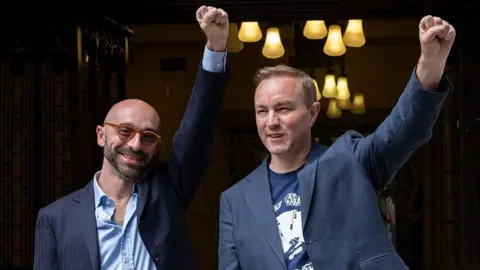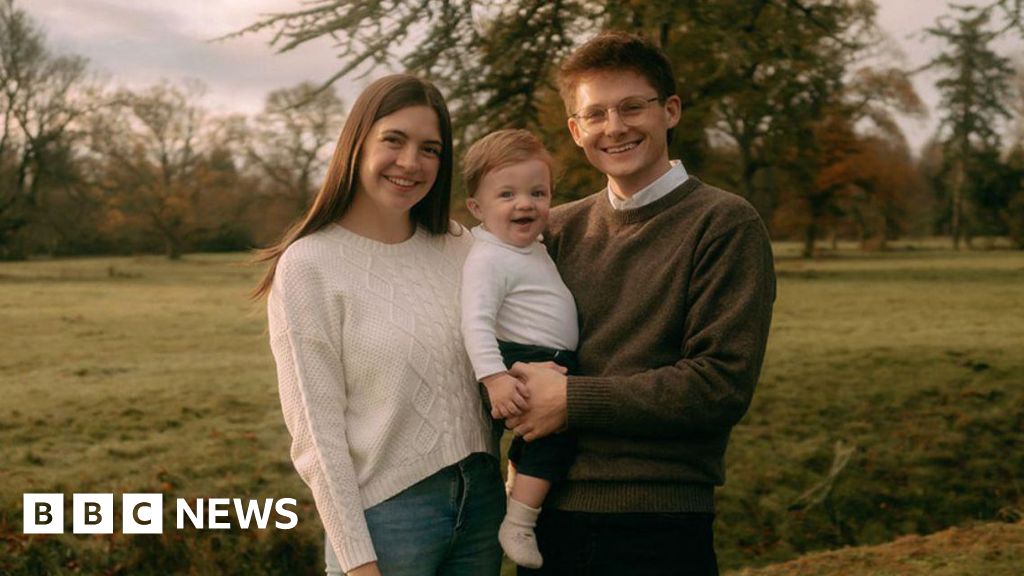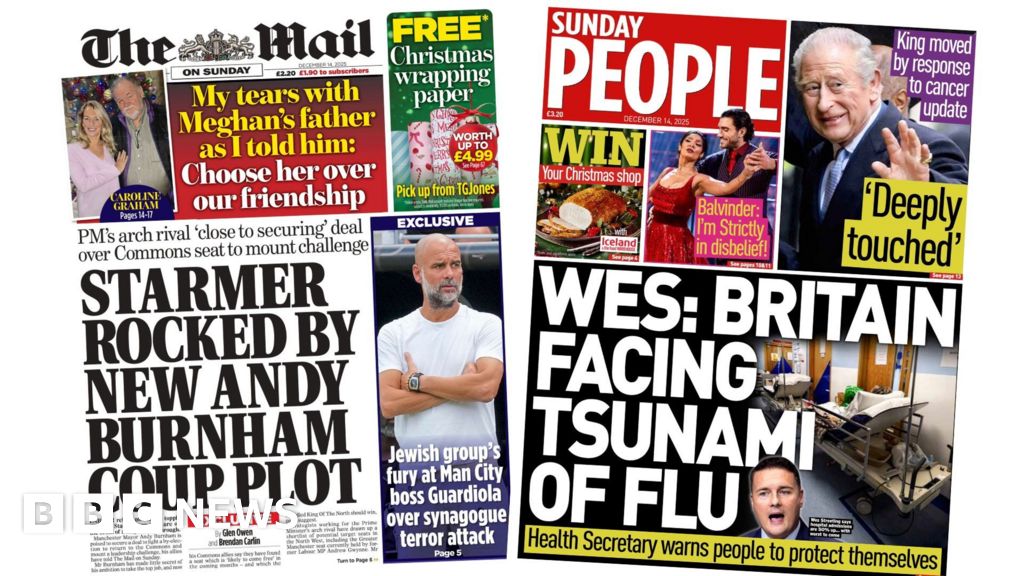Andy Verity and Mitchell Labiak
BBC News

 Bloomberg via Getty Images
Bloomberg via Getty Images
After a decade-long legal battle, two former City traders who were at the centre of one of the biggest scandals of the financial crisis have had their rate-rigging convictions quashed.
Tom Hayes and Carlo Palombo were jailed following trials for manipulating the interest rates used for loans between banks, known as Libor.
On Tuesday, their convictions were overturned in a ruling that raises many questions.
Could Hayes and Palombo claim compensation?
In the UK, defendants who have had their convictions overturned due to a miscarriage of justice can potentially claim compensation. But it is not automatic.
The key factor determining eligibility is whether the overturned conviction was deemed "unsafe" and whether a new or newly discovered fact proves innocence "beyond reasonable doubt".
If those conditions are met, compensation may be awarded by the Ministry of Justice, but even then, deductions for living expenses during imprisonment may apply.
Mr Hayes told BBC's Newsnight on Wednesday: "It would be great to get some compensation, but I won't get any from the British government. I've made peace with that."
There could be another way. After a US court threw out their rate-rigging convictions three and a half years ago, defendants including former Deutsche Bank trader, Matt Connolly, and his British former colleague, Gavin Black, sued their former employer for malicious prosecution, later agreeing confidential settlements.
Could other convicted traders appeal?
Seven other traders, who were sentenced to jail for rigging interest rates, are expected to do appeal.
Following Hayes' conviction in 2015, all the brokers he was alleged to have conspired with to manipulate interest rates were acquitted in a separate trial.
But in 2016, three former Barclays traders – Jay Merchant, Jonathan Mathew and Alex Pabon – were convicted of manipulating Libor. Together with Peter Johnson, who had pleaded guilty before the trial, they were given prison sentences in July 2016 ranging from two years and nine months to six years.
After serving out their time and emerging from jail, they are now taking advice from lawyers and are likely to apply to the Criminal Cases Review Commission to refer their cases back to the Court of Appeal.
Because the Supreme Court has now ruled in Hayes and Palombo's favour, that is likely to be a straightforward process compared to the seven-year struggle of Hayes to convince the CCRC to refer his case.
Watch: The human story behind quashed interest rate-rigging convictions
Other questions to be answered
Mr Hayes has said he wants to see "a public inquiry into how what happened to us happened".
"How was the Court of Appeal continually able to frustrate attempts to get this matter heard by the Supreme Court?" he asked.
Mr Palombo said he "100%" believed he was the scapegoat for the anti-bank backlash following the 2008 financial crash. He questioned why he, as a junior trader at Barclays, was singled out.
Senior politicians including David Davis, John McDonnell and Lord Tyrie, who conducted a short parliamentary inquiry into Libor manipulation in 2012, have said there should be a public inquiry.
They have argued in particular for a probe of the interest rate manipulation ordered by banks' senior managers, under pressure from central banks and governments including the Bank of England, as exposed the BBC Radio 4 series The Lowball Tapes.
There are also questions about how the Serious Fraud Office also took most of its evidence from external lawyers hired by Barclays, UBS or Deutsche Bank to investigate themselves.
One of the reasons Connolly and Black brought the cases is that a judge in the US ruled that US prosecutors at the Department of Justice had "outsourced" their investigation to the target of the investigation – Deutsche Bank.
Allowing banks to investigate themselves by employing external law, firms who then handed over evidence to the US Department of Justice, put employers in a "uniquely coercive position" towards employees, ruled judge Colleen McMahon.
.png)
 4 months ago
15
4 months ago
15








 English (US) ·
English (US) ·